Periodically, every missionary needs a furlough from their field of service. Normally, they spend four years on the field and then one year in the home country. Some today take six month furloughs every two years. As the missionary prepares to leave his field of service, the neighbors and new believers wonder why he is going to take a year-long vacation. They also wonder if their missionary will return. Even a supporting pastor might not appreciate the missionary’s furlough. He may say, “I can’t take a year vacation away from my church. Why should you?” Is the missionary furlough an unnecessary luxury or a legitimate need?
There is seldom a good time for a furlough. If the work is young and fragile, the missionary doesn’t want to leave it. If it is doing well, he wonders what will happen during his long absence. He certainly does not want to leave the work unattended. If he is fortunate, there will be another missionary or trained national pastor to take his place during this time. Or perhaps a nearby missionary can occasionally “look in” on the work. Maybe a somewhat mature brother in the group can take charge, but there is always a danger that the Mormons, Pentecostals, or some other heretical “brethren” will move in and take over.
So why risk a furlough? The missionary family needs rest. Jesus took his disciples aside for a rest from their extremely hectic schedule, but rest eluded them (Mark 6:31-34). Furlough is a very busy and demanding time, and rest for the missionary is likewise hard to get. Though he will benefit from a change of scenery, people, and activities, some relaxation is needful. Churches can help the missionary by providing some peaceful place or activity. It would be good to plan something special or unusual, especially for the children. Furlough should include some time for recreation.
The obvious purpose for furlough is to report to your church. The missionary is your representative, or deputy, on the field. You should be interested in what he has done there in your stead. He wants you to see how God has used his family. The devil is telling him that he has done very little, and therefore, shouldn’t return to the field. He needs to hear you say, “Well done.” Furlough should be a time of reassurance.
Only God knows what the family has been through the last few years. The mission field is hard on the body and the mind. A time of recuperation is needful. The military calls it R & R. (That is rest and recuperation, not rush and rush!) R & R could also stand for revival and restoration. Maybe the marriage needs some encouragement, as well as the parent-child relationship. No doubt their financial support needs some restoration as well! If furlough will get the missionary soldiers in shape to return to the front lines again, it is time well spent!
Furlough is also a time of recruiting. The missionary knows better than anyone how many areas on his field are still unevangelized, and he knows how desperately laborers are needed. There are potential missionaries sitting in the pews, but they may not even realize that they should get up and move out. Their eyes need to see the field, their hearts need to be broken, and their ears need to hear the pleading of the heathen on that missionary’s field!
A major reason for a furlough is for the missionary kids (MKs) to get reacquainted with home. MKs often have an identity crisis, and furlough helps them adjust to their own culture. Otherwise, they may return to the homeland to attend college or seek employment and have trouble functioning in a culture they are expected to know. Remember, they had no say about going to the mission field in the first place. When they become of age, they often cannot (and probably should not) stay with their parents. If they want to raise financial support and return as missionaries to the field where mom and dad serve, that would be wonderful. However, they should not return to the field just because they have trouble adjusting to the home culture. If a few furloughs during the childhood and adolescent years can help produce normal, well-adjusted young adults, then furloughs are worthwhile. Furloughs are a must for the children; the home pastor should require them!
The missionary must plan and save for his furlough needs: housing, transportation, and new clothes. There will be expenses for the church too: meals, lodging, love offerings, etc. Furlough should not be seen, however, as an expense but rather as an investment. As the missionary tells of the difficulties and challenges on the field, the church learns to pray more effectively. As he tells of the blessings and successes, the church is encouraged to become even more involved in the Great Commission.
When the missionary family arrives for their vacation, meet them at the dock (or airport) with banners and a brass band! They went off to war in your place; welcome them back as the heroes they are. Then after a year or so, send them back in the same way for another tour of duty!

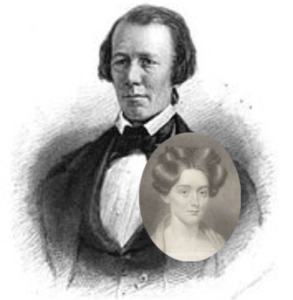 “And shall I now draw back? Shall I withhold anything from Jesus?” —Eliza Grew Jones, March 24, 1830
“And shall I now draw back? Shall I withhold anything from Jesus?” —Eliza Grew Jones, March 24, 1830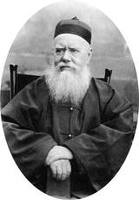 Most of us have at least heard the name of Hudson Taylor. Perhaps many of us know something about his life’s work, his beautiful relationship with Maria, and his establishment of the China Inland Mission. However, it seems that well known missionaries are often viewed as super-spiritual giants of faith who seldom, if ever, struggle with the “common” battles of “ordinary” Christians.
Most of us have at least heard the name of Hudson Taylor. Perhaps many of us know something about his life’s work, his beautiful relationship with Maria, and his establishment of the China Inland Mission. However, it seems that well known missionaries are often viewed as super-spiritual giants of faith who seldom, if ever, struggle with the “common” battles of “ordinary” Christians.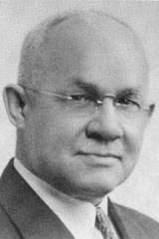 The year was 1914. William Christie had called China and Tibet home for twenty-two years when the outlaw band led by Bai Lang (also known as “White Wolf”) swept through Central China, ruthlessly pillaging and slaughtering. Through God’s protection, the missionaries of Min Chow were spared the physical harm that ravished their city and many others.
The year was 1914. William Christie had called China and Tibet home for twenty-two years when the outlaw band led by Bai Lang (also known as “White Wolf”) swept through Central China, ruthlessly pillaging and slaughtering. Through God’s protection, the missionaries of Min Chow were spared the physical harm that ravished their city and many others.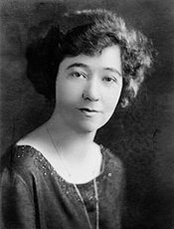 After twenty-two years of serving the Lisu, John and Isobel Kuhn came to a brick wall. It was 1950, and the communists recklessly took over China. With an uncertain future, Isobel (Belle) decided to take six-year-old Daniel to America for schooling. John agreed with their mission agency to survey Thailand before joining her. He assured Belle he would make no promises until they had discussed together the possibility of serving in Thailand.
After twenty-two years of serving the Lisu, John and Isobel Kuhn came to a brick wall. It was 1950, and the communists recklessly took over China. With an uncertain future, Isobel (Belle) decided to take six-year-old Daniel to America for schooling. John agreed with their mission agency to survey Thailand before joining her. He assured Belle he would make no promises until they had discussed together the possibility of serving in Thailand.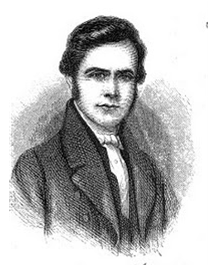 John Hunt sailed for Fiji in the 1800’s and immediately began studying the language and spending quantity time with the natives. Knowing the people motivated him to preach and begin translating the Bible within six months. He would first read from the Greek and English New Testaments, research word definitions, and study Bible resources. He then consulted many natives to improve his use of the Fijian language.
John Hunt sailed for Fiji in the 1800’s and immediately began studying the language and spending quantity time with the natives. Knowing the people motivated him to preach and begin translating the Bible within six months. He would first read from the Greek and English New Testaments, research word definitions, and study Bible resources. He then consulted many natives to improve his use of the Fijian language.